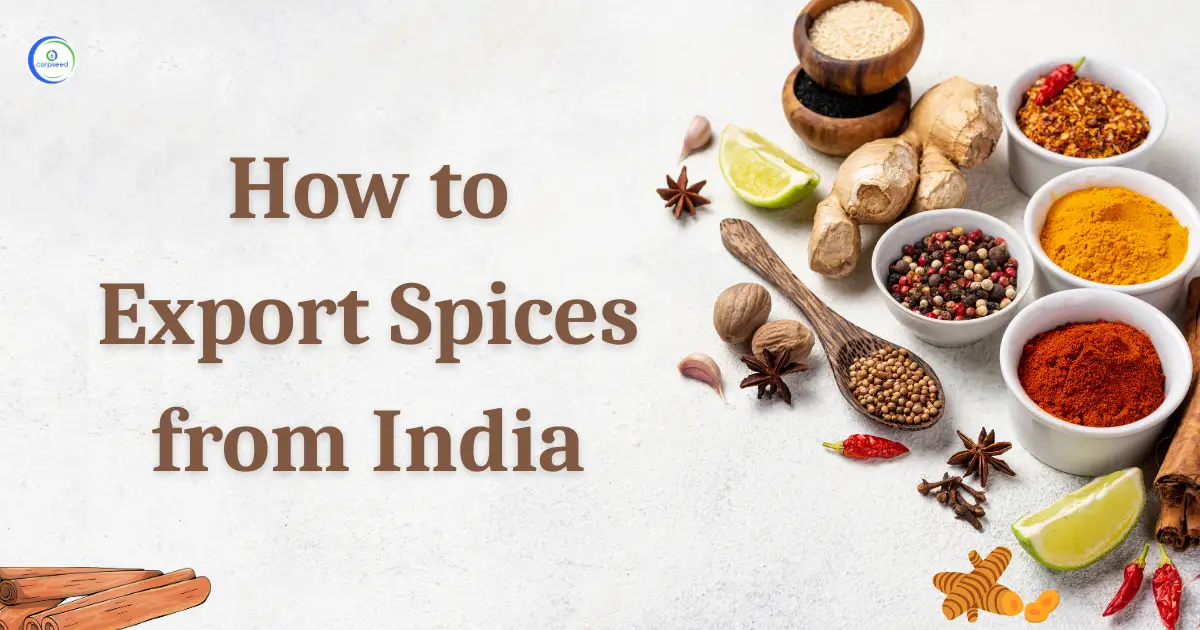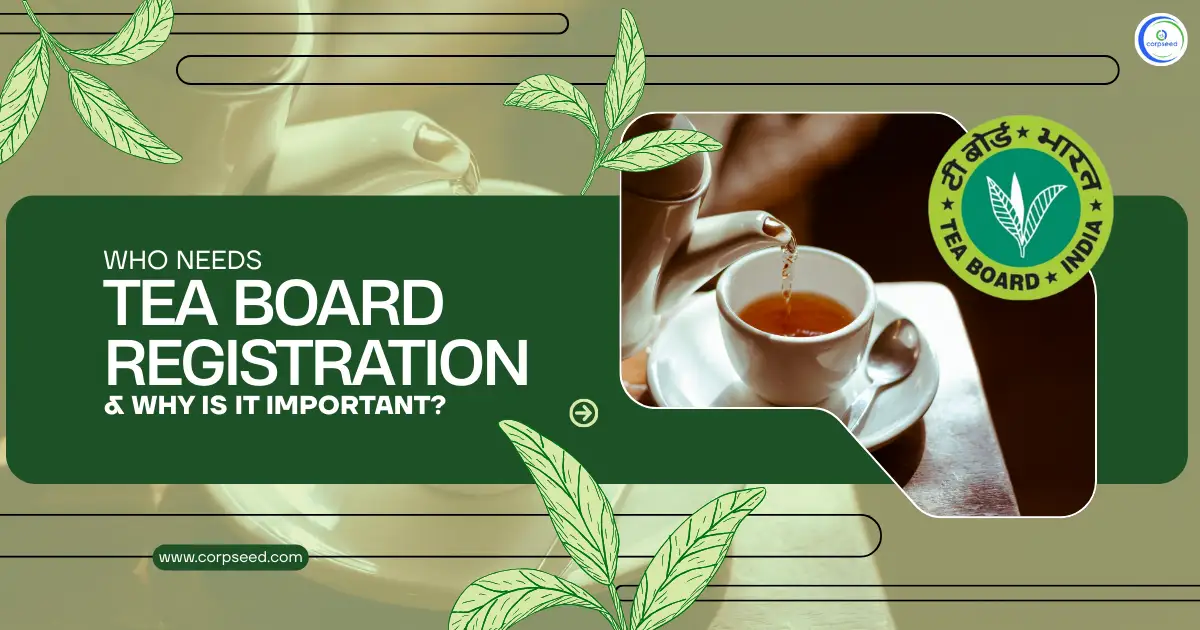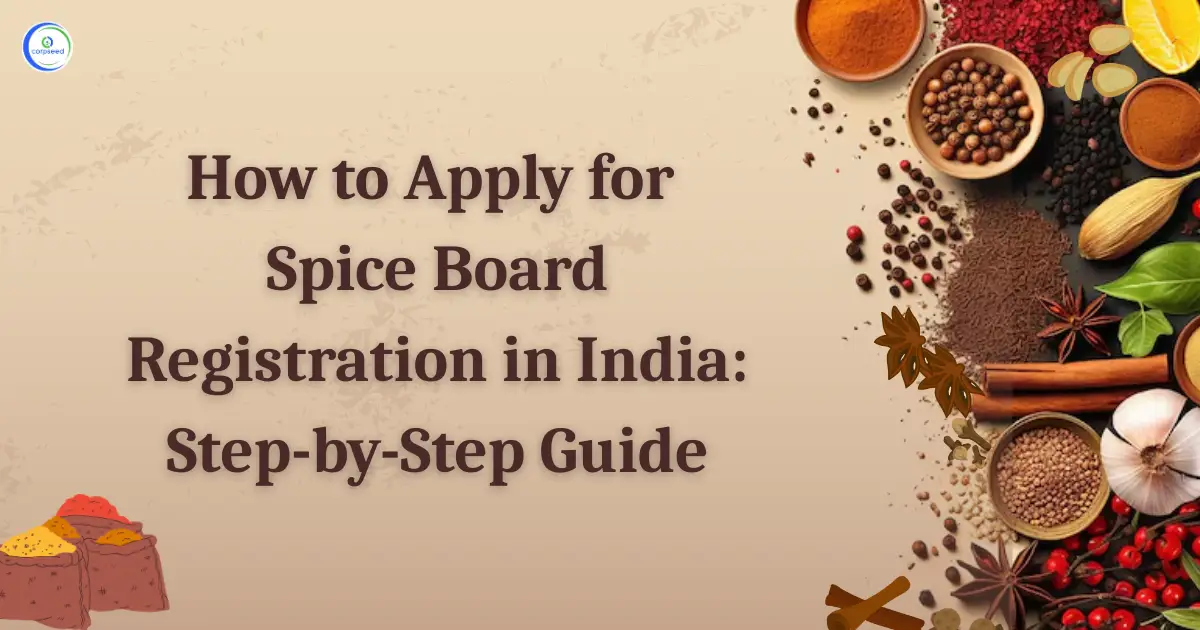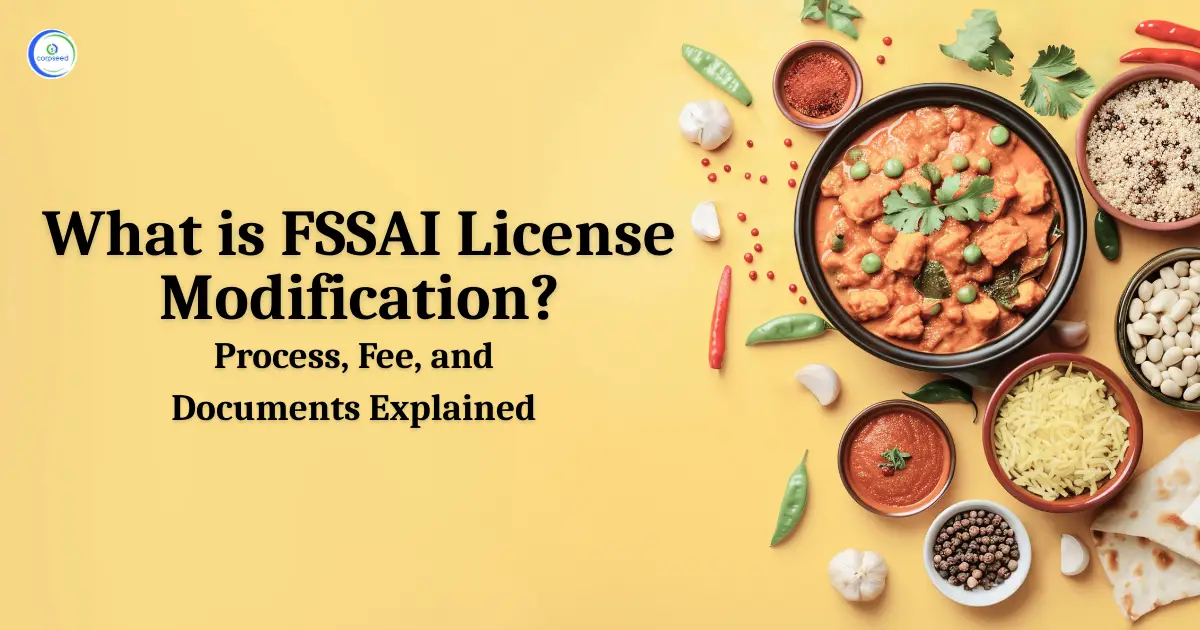India is the largest manufacturer and exporter of spices globally, known for diversities like turmeric, cumin, cardamom, black pepper and chilli powder. With rising international demand for authentic and organic spices, spice export from India has become a lucrative venture. However, the process includes careful compliance with legal registration, certification, and documentation to fulfill international standards.
Table of Contents
Why Exporting Spices from India is Profitable
The spice industry in India benefits from favourable climatic conditions, ample raw material supply, and a rich heritage of spice cultivation. This naturally positions Indian exporters to cater to varied global markets. Exporters can increase profitability by aiming on value-added products like organic spices, spice blends and dehydrated forms that command higher prices internationally.
Moreover, with the Indian government’s support through the Spice Board of India, exporters get access to technical assistance, quality control and export incentives. The combination of demand, quality and support makes spice export a profitable business opportunity.
--------------Blog Contact Form-------------
Step-by-Step Process to Export Spices from India
The process to export spices involves several critical steps to ensure compliance, quality assurance, and smooth shipping. Below is a detailed stepwise guide.
- Register Your Business: Start by registering your business legally as a sole proprietorship, partnership firm, limited liability partnership (LLP) or private limited company. This proper registration is compulsory to legally carry out export activities and open business bank accounts.
- Obtain Importer Exporter Code (IEC): The Importer Exporter Code (IEC) is an obligatory registration issued by the Directorate General of Foreign Trade (DGFT). It permits your business to commence export and import activities.
- Register with the Spice Board of India (CRES): The next essential step is to register with the Spice Board of India and acquire a Certificate of Registration as Exporter of Spices (CRES). This certification is compulsory for all spice exporters and validates compliance with quality and safety standards.
- Select Spices for Export: India exports an extensive range of spices with changing global demand. If your focus is on cumin export India or turmeric export India, research the target markets for trends, regulations, and consumer preferences. Some of the most popular spices for export include:
- Turmeric
- Cumin
- Cardamom
- Black pepper
- Cloves
- Chili powder
- Coriander
- Obtain Necessary Certifications for Organic or Value-Added Spices: For premium international markets, exporting organic or value-added spices like spice blends, oils, or dehydrated spices entails additional certifications:
- NPOP (India Organic Certification)
- USDA Organic
- EU Organic
These certifications boost product value and marketability in Europe, the USA, and other high-end markets.
- Prepare Complete Documentation: Proper documentation is essential to ensure legal compliance and hassle-free customs clearance. Appropriate and complete documentation builds importer confidence and speeds up the export process. The key documents include:
- IEC certificate
- Spice Board Registration (CRES)
- GST registration certificate
- FSSAI license
- Commercial invoice
- Packing list
- Certificate of Origin
- Phytosanitary certificate issued by agricultural authorities
- Shipping bill filed through ICEGATE
- Bill of Lading or Airway Bill
- Product quality test reports (if applicable)
- Packaging and Labeling: Packaging plays an important role in maintaining spice quality during transit and satisfying regulatory requirements of importing countries.
Packaging Guidelines:
- Use food-grade, moisture-resistant materials
- Apply tamper-proof seals
- Choose packaging size based on buyer requirements (bulk or retail)
Labeling Requirements:
- Product name
- Net weight
- Batch number
- Manufacturing and expiry dates
- Exporter details
- Country of origin
- FSSAI license number
- Shipping and Logistics: Choose the appropriate shipping method based on order size and urgency:
- Sea freight: Cost-effective for bulk shipments with longer delivery times.
- Air freight: Faster delivery for smaller, urgent consignments at a higher cost.
Export Process Steps:
- File the shipping bill electronically via ICEGATE.
- Submit all required documents to customs.
- Pay customs duties and other charges, if applicable.
- Obtain Let Export Order (LEO).
- Coordinate with freight forwarders for shipment.
Also Read: How to Start Spice Business in India?
Conclusion
Exporting spices to India is a promising and profitable business as long as it is done with proper knowledge and compliance with the rules. You can successfully reach international markets by registering your business legally, obtaining IEC code and spice board registration, preparing complete documentation, and ensuring quality packaging and labeling.
By focusing on high-demand spices and value-added or organic products, with the support of certification, helps Indian exporters fulfill global standards and gain access to premium markets. Efficient logistics and timely delivery ensure a more smooth export process and strengthen long-term trade relations. With the right approach and commitment to quality, Indian spice exporters can meet the growing global demand and expand their presence worldwide.
FAQ`s
IEC is a compulsory registration by DGFT required for all exporters to legally ship goods from India.
Yes, Spice Board registration (CRES) is mandatory for all spice exporters to ensure quality compliance.
Fundamental documents include IEC, Spice Board registration, GST, FSSAI license, invoice, packing list, certificate of origin, and phytosanitary certificate.
Yes, but you must have organic certifications like NPOP, USDA Organic, or EU Organic for export.
Sea freight is used for bulk shipments, and air freight is preferred for smaller, urgent consignments.
This portion of the site is for informational purposes only. The content is not legal advice. The statements and opinions are the expression of author, not corpseed, and have not been evaluated by corpseed for accuracy, completeness, or changes in the law.
BOOK A FREE CONSULTATION
Get help from an experienced legal adviser. Schedule your consultation at a time that works for you and it's absolutely FREE.









